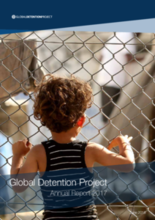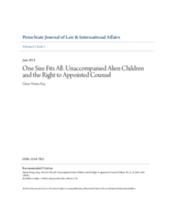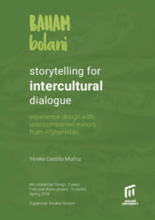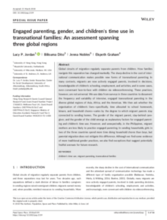Displaying 471 - 480 of 839
The paper aims at contributing to the knowledge and understanding of growing up transnationally and ‘doing transnational family’ between China and Hungary. It has a special focus on mobile childhoods in transnational families and links specific childcare-related phenomena with the process of the integration of second generation migrants.
This annual report from the Global Detention Project presents an overview of its efforts and achievements in exposing the practices and impacts of immigration detention 2017, including the detention of migrant children.
This paper explores what happens to children separated from their families at the U.S. border with Mexico by examining the nature of the services and programs provided while they are in temporary foster care.
This comment will argue that unaccompanied alien children have a due process right to appointed counsel at the government’s expense.
This article aims to explore the experiences of Ethiopian unaccompanied and separated migrant children in Yemen.
This project explores storytelling tools for the collaborative work with persons in vulnerable situation, in this case, a group of unaccompanied minors from Afghanistan living in Umeå, Sweden.
This special issue of the Children & Youth Services Review, Volume 92, focuses on unaccompanied immigrant children throughout the world.
The authors of this study use data from surveys in three countries to document the frequency and variability of intensive, engaged transnational parenting in the diverse global regions of Asia, Africa, and the Americas.
This study from Population, Space and Place provides the first estimates of the prevalence of parental absence via migration that are comparable across populations in contemporary Latin America.
This study is a pioneer effort to comparatively examine how the life satisfaction of children is influenced by their experiences of migration and by their interactions with parents in two geographical contexts: Ghana and China.





